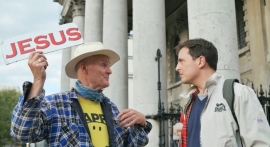
Should an employer be obligated to accommodate the situation of a pregnant employee when her condition starts to interfere with the manner by which she accomplishes her duties at work?
The Supreme Court justices attempted to wrestle with the nuances of this issue relying only on the provisions laid down by The Pregnancy Discrimination Act of 1978 (PDA) to shed light on such murky situation.
This question gained public attention and outrage following the dismissal of pregnant Peggy Young, an employee working for the United Parcel Service (UPS), when she sought for the company's consideration regarding her plight. The refusal of the company to acknowledge the fragility of her condition caused Young her salary and insurance benefits.
As detailed in Peggy Young v. United Parcel Service, the then-pregnant employee, who was a delivery truck driver for the company for almost 10 years, asked UPS to temporarily allow her to handle less tedious tasks. Her request was in accordance with the advice of her midwife and doctor, who asked her to avoid lifting heavy objects weighing more than 20 pounds. Young clarified that the shift to less strenuous responsibilities will only cover the remainder of her pregnancy, thereby rendering the change as merely temporary. UPS refused to grant her request.
To justify their decision, UPS cited the company policy that does not specify any provision providing special consideration for employees in Young's situation. According to the company, UPS only provides accommodated work to three types of disabilities. These include employees who incur injury while performing their duties, those who are classified as disabled under the Americans With Disabilities Act, and workers who have legitimate medical reasons that render them incapable to meet the standards set by the Department of Transportation to drive a commercial motor vehicle. Given these explicit provisions, UPS claimed that the company cannot accommodate workers incapacitated due to pregnancy alone.
These issues now seek clarification from the court. Given Young's situation at the time the alleged discrimination occurred and the company policies of UPS, the justices have to decide on how to resolve the issue.
As stated in the PDA, "women affected by pregnancy, childbirth, or related medical conditions shall be treated the same for all employment-related purposes." In addition, the law states that pregnant employees should be treated as "persons not so affected but similar in their ability or inability to work."

















